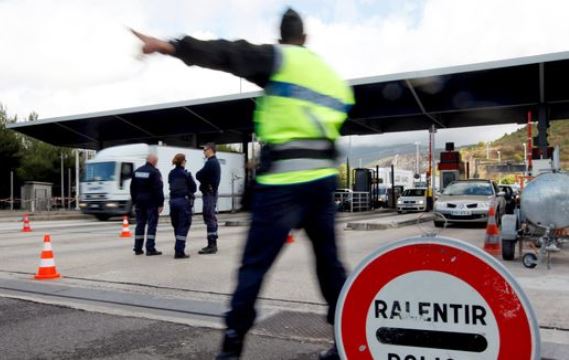Dangerous goods on Swiss roads and rails
The risks that could arise from dangerous goods on Swiss roads and railways are very minimal. Switzerland has an advanced basis for monitoring transport risks and, if necessary, taking measures.

The risks posed to the population by dangerous goods are acceptable. This is the conclusion of a Federal Council report drawn up in response to a postulate from the Committee for Transport and Telecommunications of the Council of States on the mitigation of such risks.
In its postulate of 18 May 2015, the Committee for Transport and Telecommunications of the Council of States had requested that measures be identified to reduce the risks associated with the transport of dangerous goods by rail or road, in particular chlorine. Dangerous goods (e.g. petrol, propane, chlorine) must be transported by rail or road in accordance with international regulations, supplemented by Swiss provisions.
Railways and roads on which large quantities of hazardous goods are transported are also subject to the Major Accidents Ordinance in order to protect the population and the environment from serious damage as a result of major accidents. The Federal Council approved the report in response to the postulate on 28 June 2017.
Joint control
The responsible federal offices (Federal Office of Transport FOT, Federal Roads Office FEDRO and Federal Office for the Environment FOEN) monitor risks across the entire transport network using jointly developed tools. This enables them to identify risks that are increasing, e.g. due to settlement development, at an early stage and to act accordingly.
This was most recently the case with the transport of chlorine by rail in tank wagons: in 2016, strict risk reduction targets and corresponding measures were agreed with the companies and authorities concerned in the second Joint Declaration in order to reduce the risks of such transports for the population along the railway lines.
According to the most recent overall assessment, less than 0.5 percent of the routes on the national roads pose an increased risk with regard to hazardous transport operations. FEDRO continuously adapts these transport routes to the current state of safety technology in the context of new constructions, extensions, conversions or renovations. There are no unacceptable risks on the railways.
Switzerland also has a high security standard in international comparison. Sys
tematic risk assessments of dangerous goods transports on the entire road and rail network and assessment criteria for dealing with these risks currently exist in a comparable form only in the Netherlands.
In its report, the Federal Council emphasises that the Major Accidents Ordinance requires coordination with cantonal structure and land-use planning, so that the risks along railway lines and roads do not increase uncontrollably in the future as a result of settlement development. (Source: astra/admin)









